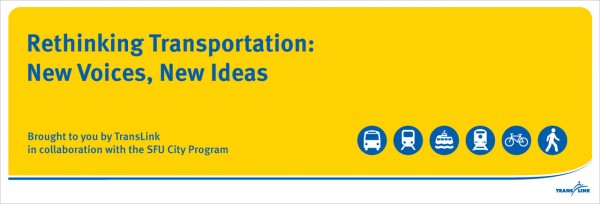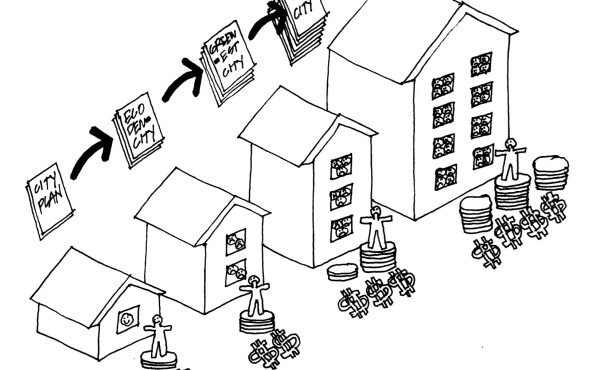
Over the next 30 years, the Metro Vancouver region will grow by one million more people and add half a million jobs to the economy. As a region, we will have to address transportation challenges and face some difficult decisions: how will we travel for work, school and play? How will we move goods to grow our region’s economic prosperity while maintaining our quality of life?
Rethinking Transportation: New Voices, New Ideas is a speakers’ series focused on key transportation issues and opportunities facing the Metro Vancouver region. The series will explore new perspectives on the movement of people and goods in cities with thought leaders, decision makers, and experts from across North America who have tackled some of the most pressing transportation challenges.
All lectures will be live webcast.
Easing Congestion in Metro Vancouver: Prices Without Subsidies
Details
Date: Tuesday, February 25, 2014, 7 p.m.
Time: 7 p.m.
Location: Djavad Mowafaghian Cinema, Goldcorp Centre for the Arts (at SFU Woodwards), 149 West Hastings, Vancouver
Admission is free, but reservations are required.
Watch the live webcast here: creative-services.sfu.ca/broadcast
Andrew Coyne will talk about a unified approach to pricing cars and transit.
Transit advocates commonly suppose that subsidizing transit more heavily will induce more people to give up their cars, thus alleviating congestion. The evidence for this is scant, while a better solution is at hand: pricing roads.
Not only would road tolls automatically make transit more competitive with cars, but surface transit users would also benefit from the faster traffic flows that result. Pricing road use is the only effective way to induce people to drive less: indeed, as road use is at present rationed by time rather than money, other proposed methods (e.g., wider roads, carpooling, synchronized lights, etc.,) end up inducing people to drive more, since they reduce the time-price of using the roads.
Put the revenues from road tolls toward subsidizing transit? No: subsidized transit suffers from much the same defects as subsidized roads — both mask the real price of resource use, and both encourage sprawl. Moreover, to the extent subsidies make transit less dependent on riders for revenues, they lessen incentives to innovate and improve service.
About Andrew Coyne
 Andrew Coyne is a national columnist for Postmedia/National Post and has been a regular contributor to The National’s At Issue panel since 2005.
Andrew Coyne is a national columnist for Postmedia/National Post and has been a regular contributor to The National’s At Issue panel since 2005.
Raised in Winnipeg, he went on to study at the London School of Economics and is a fellow of the School of Public Policy and Governance at the University of Toronto. Over the past two decades he has been an editorial writer and columnist for The National Post and The Globe and Mail. He has also contributed to a number of other publications including The New York Times, National Review, Time andThe Wall Street Journal.
Andrew has won two National Newspaper Awards and the Hyman Solomon Award for Excellence in Public Policy Journalism.



2 comments
Could you let me submit this on my twitter?
Hi Mandy,
Sorry for the late response…..feel free to spread the word.
E